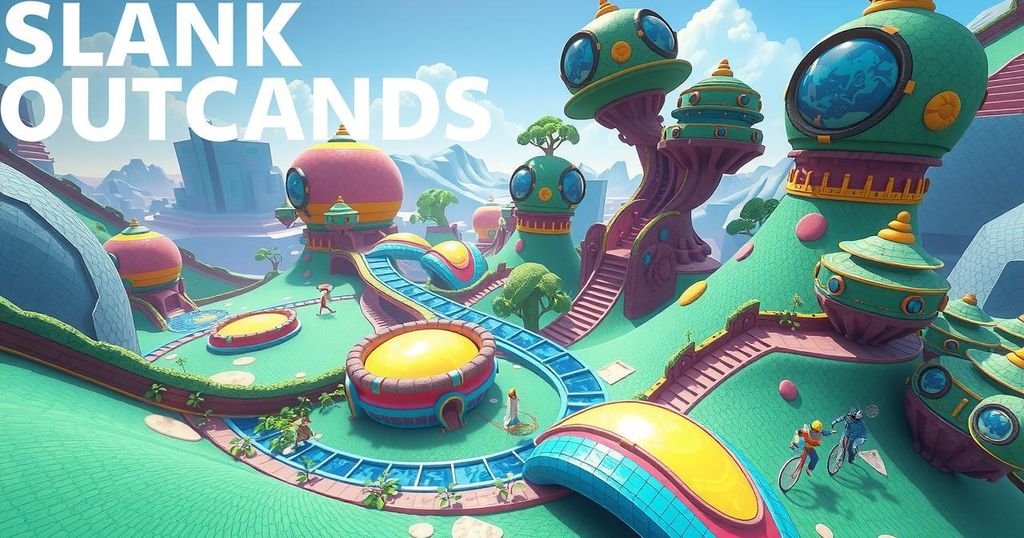How Artificial Intelligence is Reprogramming the Future of Games
- AI is reshaping the gaming industry through innovation and personalized experiences.
- Over 70% of large game companies now have dedicated AI teams to enhance production.
- Games like Minecraft show how AI can facilitate automatic world generation.
- Companies are implementing AI for NPCs to learn from players and enhance interactions.
- The goal of personalized gaming experiences is closer than ever due to AI advancements.
AI’s Impact on Game Design and Player Interaction
Artificial Intelligence (AI) is rapidly changing the landscape of the gaming industry, extending beyond just enhanced graphics and novel gameplay mechanics. It’s bringing an entirely new flavor to how games are designed and played—players are now encountering NPCs (non-player characters) that are not just scripted responses but intelligent entities that can interact on many levels. Gone are the days of predictable character interactions; we’re in an era where AI is revolutionizing the player experience by generating dynamic stories tailored to individual gameplay styles and preferences.
Changing Workflows and Company Cultures
In a recent report by Deloitte, it was revealed that over 70% of large gaming studios have established dedicated teams to explore and implement AI technologies across various departments. Ubisoft, a leading name in the gaming world, employs a tool called Ghostwriter to draft initial dialogue for NPCs, minimizing the time writers spend on these tasks. Similarly, EA takes advantage of AI models to identify bugs and achieve better game balance, thus shortening the testing phases while ensuring the games remain stable. This strategic shift highlights how studios are not just updating graphics but fundamentally altering how teams collaborate on projects, making communication between tech and creative departments more fluid.
Balancing Technology and Workforce
Despite the pros, the adaptation comes with its own set of challenges, particularly regarding sensitive processes. Shahar Sorek, the CMO at Overwolf, pointed out that any application of AI in crucial elements like coding or game engines requires scrupulous oversight. “It’s essential we are careful with AI adjustments since these tools are not built in-house, and we have to be wary of data security,” he mentions. Additionally, he reassures that the introduction of such technology doesn’t mean a workforce reduction; rather, it’s about enhancing human workers’ capabilities. “The complexity of gaming ensures that the human touch remains indispensable,” he asserts, reflecting a common sentiment shared across the industry.
Playing a New Kind of Game
AI’s reach into gaming isn’t limited to backend development; it’s also transforming gameplay itself. Take Minecraft for instance, where modders have created AI-infused add-ons enabling players to generate entire worlds based on simple descriptions. It’s as easy as typing in a request for a serene underwater world or a chaotic medieval fortress, and voilà; the AI constructs it with immersive quests and encounters—all in minutes. Further, advancements in NPC technology enable these characters to learn from player interactions, adapt in real-time, and, in some instances, even engage players in profound discussions. These innovations signify a notable shift towards a more personal, engaging gaming experience.
The Future: Fully Customized Gaming Experiences
Furthermore, CD Projekt Red, known for the ambitious Cyberpunk 2077, is exploring AI-driven mechanics which adjust narratives based on player behavior over time. If players lean towards helping others, they may find themselves embroiled in more emotional story arcs; conversely, aggressive players may unlock high-adrenalin missions specifically tailored to their gameplay style. The overarching aim is to craft a uniquely tailored experience for each player, where AI might soon play a pivotal role in generating comprehensive game content that resonates with individual tastes. The dream of a fully customized gaming experience seems closer than ever, thanks to ongoing advancements in AI.
In summary, AI is fundamentally reshaping the gaming landscape by enhancing character interactions, streamlining development workflows, and personalizing player experiences more than ever before. Major gaming companies are integrating AI at an unprecedented rate, leading to a more interconnected and dynamic industry. The future may very well hold an exciting reality of fully AI-generated games tailored to individual player preferences, providing an engrossing and unique experience.




Post Comment